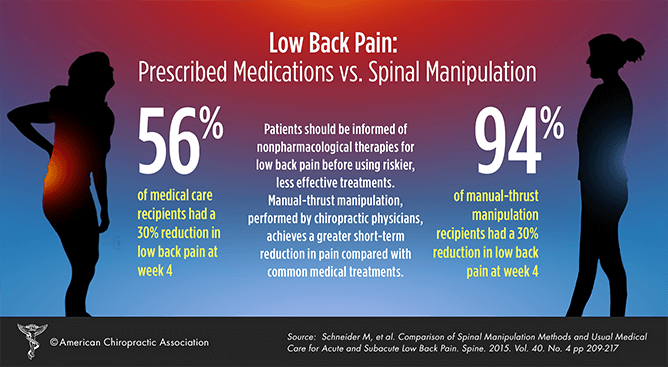The Function Of Nutrition In Back Pain Monitoring: Foods To Consume And Avoid
The Function Of Nutrition In Back Pain Monitoring: Foods To Consume And Avoid
Blog Article
Short Article Written By-Russo Sharpe
When it pertains to handling your pain in the back, the food choices you make can significantly impact how you really feel each day. Picture being able to alleviate your pain simply by readjusting what you eat. By recognizing the function of nutrition in back pain management and understanding which foods to integrate or stay away from, you can take positive steps towards a healthier and extra comfortable way of life. The link between nourishment and back health and wellness is much more extensive than you may recognize-- let's check out just how certain foods can either relieve or intensify your pain in the back.
Importance of Nourishment in Pain In The Back
Nourishment plays a vital role in managing back pain. Your diet can significantly impact inflammation degrees and general pain degrees in your back. Eating see page balanced diet regimen rich in nutrients like vitamins D and K, calcium, magnesium, and omega-3 fats can help reduce swelling and strengthen bones, which are necessary for back health and wellness.
Furthermore, preserving top nyc chiropractor through correct nutrition can minimize anxiety on your back, reducing the danger of pain in the back.
Furthermore, specific nutrients like antioxidants discovered in fruits and vegetables can help fight oxidative stress and anxiety and advertise recovery in the body, consisting of the back muscle mass and spine.
On the other hand, consuming too much amounts of processed foods, sugary beverages, and undesirable fats can contribute to inflammation and weight gain, exacerbating back pain.
Foods to Eat for Back Health
To sustain a healthy and balanced back, including nutrient-rich foods right into your daily dishes is crucial. Including foods high in anti-oxidants like berries, spinach, and kale can help reduce swelling in your back, easing discomfort and pain. Omega-3 fats located in fatty fish such as salmon and mackerel have anti-inflammatory residential or commercial properties that can benefit your back health and wellness.
Additionally, eating nuts and seeds like almonds, walnuts, and chia seeds offers important nutrients like magnesium and vitamin E, which sustain muscle mass feature and minimize oxidative tension. Integrating acupuncture ny as poultry, turkey, and tofu can assist in muscle repair work and maintenance, promoting a solid back.
Do not forget to include milk or strengthened plant-based alternatives for calcium to support bone wellness. Last but not least, hydrate with plenty of water to keep your back discs hydrated and functioning optimally. By consisting of these nutrient-dense foods in your diet, you can nourish your back and assistance total spine wellness.
Foods to Avoid for Pain In The Back
Opt for staying clear of refined foods high in added sugars and trans fats when seeking relief from neck and back pain. These sorts of foods can contribute to inflammation in the body, which might aggravate back pain. Say no to sugary snacks sweet, breads, and sweet drinks, as well as junk food things like hamburgers, fries, and fried chicken that are usually filled with trans fats.
Additionally, steer clear of foods consisting of high degrees of refined carbs, such as white bread, pasta, and breads, as they can spike blood sugar degrees and possibly worsen swelling in the body.
It's also important to limit your consumption of foods high in hydrogenated fats, like red meat and full-fat dairy items, as they can add to swelling. Processed foods like deli meats, chips, and packaged snacks are often high in hydrogenated fats and should be eaten in small amounts.
Recommended Web site , focusing on your diet regimen and making wise food choices can have a significant impact on managing back pain. By including nutrient-rich foods like berries, fatty fish, nuts, and lean healthy proteins, and staying clear of processed and sugary products, you can help reduce inflammation and support overall back wellness. Bear in mind, what you eat plays a crucial role in how you feel, so make sure to prioritize your nourishment for a much healthier back.
